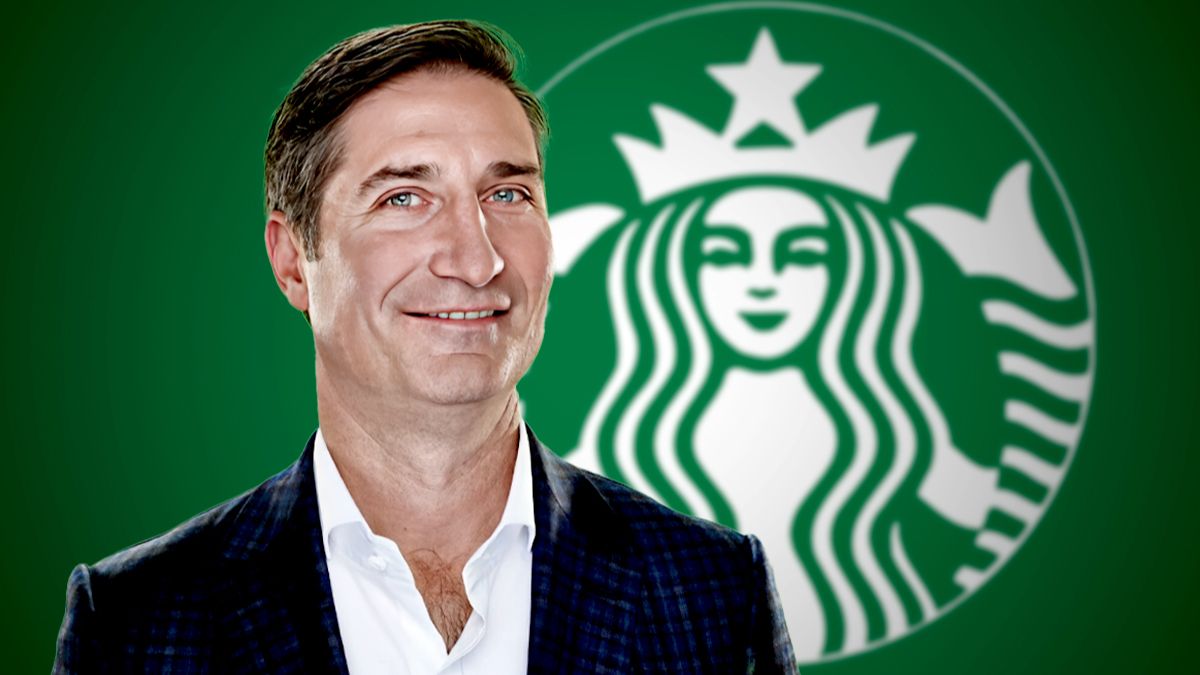Starbucks’ latest leadership change is making waves—not just because of the top executive shuffle, but also due to the extraordinary commute the new CEO Brian Niccole will undertake.
According to the new CEO’s offer letter, starting next month, the top executive will be flying 1,000 miles (1,600 km) three times a week from his home in Newport Beach, California, to Starbucks’ Seattle headquarters—courtesy of a corporate jet.
Not only this, but the coffee giant has also promised to set up a remote office for Niccol in Newport Beach, complete with an assistant of his choosing, all at Starbucks’ expense.
Here’s what we know about Starbucks CEO’s ‘super’ offer
What’s on the table for Niccol
Earlier this week, Starbucks unveiled a substantial compensation package for its incoming CEO, Brian Niccol, which totals approximately $113 million (Rs 948 crore).
This includes a $10 million sign-on bonus, a $75 million equity grant, and, starting in fiscal 2025, a potential annual equity grant worth up to $23 million. In addition to this, Niccol will receive a base salary of $1.6 million and an annual cash bonus that could range between $3.6 million and $7.2 million, contingent on his performance.
A Starbucks spokesperson emphasised the company’s confidence in Niccol’s leadership, stating, “His compensation at Starbucks is tied directly to the company’s performance and the shared success of all our stakeholders.” Adding, “We’re confident in his ability to deliver long-term, enduring value for our partners, customers, and shareholders.”
Impact Shorts
More ShortsNotably, in addition to a perk of up to $250,000 in personal travel on the corporate jet, Starbucks has promised to cover the cost of temporary housing and provide a personal chauffeur during his stays in Seattle until permanent secondary housing is arranged.
“Brian’s primary office and a majority of his time will be spent in our Seattle Support Center or out visiting partners and customers in our stores, roasteries, roasting facilities and offices around the world,” the spokesperson for the company told CNBC. “His schedule will exceed the hybrid work guidelines and workplace expectations we have for all partners.”
Raj Choudhury, a Harvard Business School professor who specialises in remote work, commented that this arrangement is a “smart risk” by Starbucks to snag a star executive.
This move comes at a critical time for the company, which has faced challenges, particularly in its key markets, the US and China. Under the former CEO Laxman Narasimhan, who recently stepped down, Starbucks saw a 23 per cent drop in share value and a disappointing $32 billion drop in market cap, highlighting the urgent need for a turnaround.
ALSO READ: Why Starbucks fired Indian-origin CEO Laxman Narasimhan months after appointment
Super commute becoming super common
While most employees can’t negotiate the freedom to work remotely, senior-level executives are often granted this flexibility to attract and retain top talent, according to Choudhury. This trend of “super commutes” is becoming more common among C-suite leaders.
For instance, when Victoria’s Secret hired Hillary Super from Rihanna’s lingerie brand Fenty x Savage last week, they allowed her to work from the company’s New York City office from next month rather than relocating to their headquarters near Columbus, Ohio.
Similarly, when Niccol took over as CEO of Chipotle, the company moved its headquarters from Denver to California just three months into his tenure to accommodate his preferences.
Choudhury notes, “It’s becoming increasingly common because we’re still in a competitive labour market. Executives aren’t accepting job offers if flexibility isn’t on the table."
Despite the rising trend, these super commute arrangements by Starbucks have sparked criticism on social media, with some questioning the company’s climate change goals.
‘Hypocrisy’ by Starbucks
The announcement of Brian Niccol’s super commute plan has sparked widespread criticism on X, with many users expressing shock and disapproval.
Critics were quick to highlight what they see as hypocrisy on Starbucks’ part, particularly in light of the company’s recent environmental initiatives, such as replacing plastic straws with paper ones globally.
One user vented, “Flying a private jet three days a week just to go to work, but Starbucks had the unmitigated gall to tell us to use paper straws. I hate it here.” Another remarked, “You better stop giving paper lids and straws. That would be hypocritical.”
Others echoed similar sentiments, with one person saying, “We have to drink from paper straws, while their CEO commutes via private jets.”
The backlash is seen by some as a potential public relations disaster, with calls for Starbucks to reconsider the terms of Niccol’s contract.
With input from agencies


)

)
)
)
)
)
)
)
)



